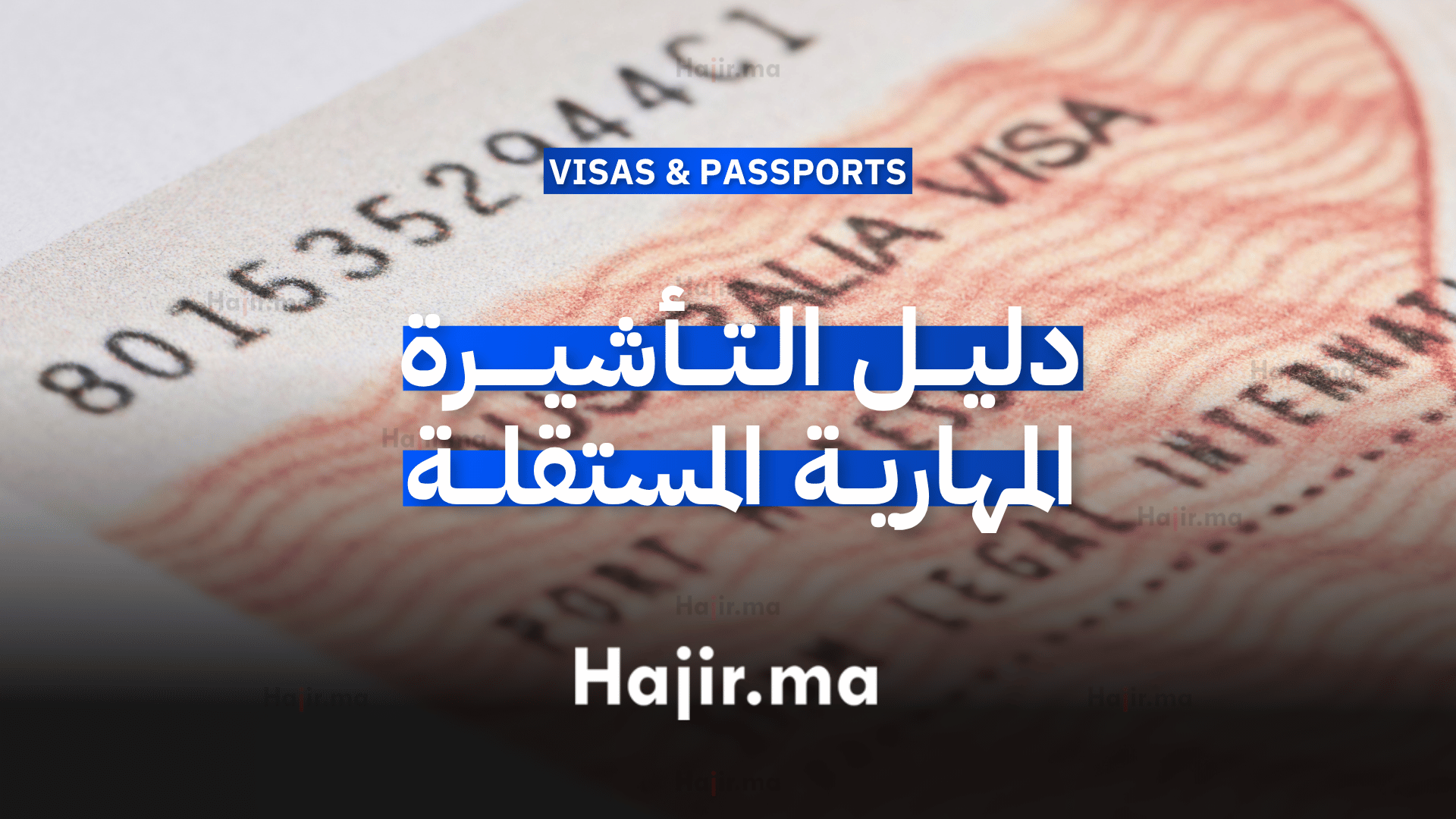Welcome to our comprehensive guide on how to obtain a Canadian work permit as a foreigner. Canada has a thriving job market, and obtaining a work permit can be a key step in pursuing employment opportunities in the country. This guide will provide you with an overview of the process, eligibility requirements, and application procedures involved in obtaining a Canadian work permit, so you can successfully navigate the Canadian immigration system.
Understanding the Canadian Work Permit System
If you are planning to work in Canada as a foreigner, understanding the Canadian work permit system is crucial. The Canadian government has a structured visa and work permit system that regulates the entry of foreign workers into the country.
The Canadian work permit system is designed to ensure that foreign workers coming to Canada can do so safely and legally. The system seeks to protect the interests of both the Canadian economy and foreign workers. Canadian employers must ensure that all foreign workers have valid work permits before they can work in Canada.
The Different Types of Canadian Work Permits
There are several types of Canadian work permits available, depending on the nature of the job, and the worker’s qualifications. Some of the common types of Canadian work permits include:
- Employer-specific work permits
- Open work permits
- International Experience Canada (IEC) work permits
- Global Talent Stream
- Intra-Company Transfer
Each work permit type has its own set of criteria that must be met for eligibility. It is essential to know which type of work permit you are applying for and ensure that you meet the required criteria.
Regulations Governing the Canadian Work Permit System
The Canadian work permit system is regulated under the Immigration and Refugee Protection Regulations (IRPR). The IRPR contains all the regulations governing the entry of foreign workers into Canada and outlines the criteria for eligibility.
The IRPR aims to protect the interests of Canadian citizens and permanent residents by prioritizing them for jobs whenever possible. The system seeks to ensure that foreign workers coming to Canada are not taking jobs that Canadians could fill. Employers are required to demonstrate that they have made a reasonable effort to hire Canadian citizens and permanent residents before hiring foreign workers.
The Significance of a Canadian Work Permit
A Canadian work permit is significant as it allows foreign workers to legally work in Canada. It is mandatory for foreign workers to have valid work permits before they can work in Canada. A work permit serves as evidence that the foreign worker has met the eligibility criteria set by the Canadian government.
The work permit system also allows the Canadian government to monitor and regulate foreign worker intake into the country. The system seeks to ensure that foreign workers are treated fairly while they work in Canada.
Understanding the Canadian work permit system is crucial to ensure that you are eligible to work in Canada. By knowing the different types of work permits available, the regulations governing the system, and the significance of a work permit, you will be better equipped to navigate through the Canadian work permit system with ease.
Eligibility Criteria for a Canadian Work Permit
To obtain a Canadian work permit, you must meet certain eligibility criteria. The Canadian government has put these criteria in place to ensure that foreign workers do not take jobs that could be filled by Canadian citizens or permanent residents.
Job Offer
To be eligible for a Canadian work permit, you must have a valid job offer from a Canadian employer. The job offer must be for a position that is temporary and not permanent, meaning that the employer must specify the duration of the job. In general, the job offer must be supported by a positive labour market impact assessment (LMIA), which ensures that the employer has made efforts to hire Canadian citizens or permanent residents before offering the job to a foreign worker.
Education and Experience
Depending on the nature of the job offer, the Canadian government may require you to have a certain level of education or work experience. For example, if the job requires a certain level of education, you must be able to demonstrate that you meet those educational requirements. Similarly, if the job requires a certain amount of work experience, you must be able to provide proof of that experience.
Language Proficiency
In order to be eligible for a Canadian work permit, you must be able to demonstrate sufficient language proficiency in either English or French, depending on the province in which you will be working. The Canadian government has designated specific tests to determine language proficiency, and you must achieve a certain score on these tests in order to be eligible for a work permit.
Specific Requirements
Depending on the type of work permit you are applying for, there may be additional eligibility criteria that you must meet. For example, if you are applying for a work permit under the International Mobility Program, you may be required to have a certain type of work experience or to be working in a certain field. It is important to check the specific requirements for the type of work permit you are applying for before submitting your application.
By meeting the eligibility criteria for a Canadian work permit, you can greatly increase your chances of being approved for a work permit and pursuing employment opportunities in Canada.
The Application Process for a Canadian Work Permit
In this section, we will guide you through the step-by-step application process for a Canadian work permit. It is important to ensure that you meet the eligibility criteria before proceeding with the application process.
Step 1: Determine the type of work permit you need
The first step in the application process is to determine what type of work permit you require. This will depend on the nature of your job offer, your qualifications, and your intended length of stay in Canada. Some common types of work permits include employer-specific work permits, open work permits, and international mobility programs.
Step 2: Gather the Required Documents
Once you have determined the type of work permit you need, the next step is to gather all the required documents. These may include a valid passport, a job offer letter, a labor market impact assessment, proof of qualifications, and proof of language proficiency. You may also need to provide biometrics and undergo a medical exam, depending on your country of origin.
Step 3: Complete the Application
After gathering all the required documents, you can start the application process. You can either apply online through the Government of Canada’s website or in person through a visa application center. Make sure to fill out the application form accurately and pay the required fees.
Step 4: Wait for Processing
After submitting the application, you will need to wait for processing. The processing times will vary depending on the type of work permit you are applying for and your country of origin. You can check the current processing times on the Government of Canada’s website.
Step 5: Receive Your Work Permit
Once your application has been approved, you will receive your work permit. Make sure to read it carefully and understand the conditions and restrictions that apply. Keep your work permit in a safe place and make sure to renew it before it expires if you plan to continue working in Canada.
Processing Times and Work Permit Duration
The processing times for Canadian work permits may vary depending on factors such as the type of work permit being applied for, the applicant’s country of origin, and the workload of the visa processing center at the time of application. Generally, the processing time for a Canadian work permit ranges from a few weeks to a few months.
To avoid any delays in processing times, it’s important to ensure that all required documents are included with the application and that they are accurate and up-to-date. Additionally, applicants may be required to undergo medical exams or provide biometric data, which can also affect processing times.
Once a Canadian work permit has been issued, the duration of the permit may vary based on the type of work permit and the specific conditions attached to it. Typically, work permits are issued for a duration of one to two years. Extensions and renewals may be possible, depending on the specific circumstances of the applicant.
It’s important to note that work permit holders are only authorized to work in Canada for the duration of their permit. If an individual wishes to continue working in Canada after their work permit expires, they must apply for an extension or renewal, or obtain a new work permit altogether.
Work permit conditions and rights
When you hold a Canadian work permit, there are certain conditions that may be imposed upon you. The conditions depend on the type of work permit you have been approved for. There are two main types of work permits:
- Employer-specific work permit
- Open work permit
If you have been approved for an employer-specific work permit, you are only allowed to work for the employer mentioned in your application. You will need to keep your work status updated with the most current employer information. If your employment ends or you wish to switch employers, you will need to apply for a new work permit.
However, if you have an open work permit, you have the freedom to work for any employer in Canada, with certain exceptions. You are not required to update your work status details if you change employers while your work permit is still valid.
Regardless of what type of work permit you have, you should be aware of your rights as a worker in Canada. Here are a few key points to bear in mind:
- You are entitled to receive the minimum wage set by the province you are working in.
- Your employer must provide you with a safe and healthy work environment.
- You have the right to be treated fairly, without discrimination or harassment.
It’s important to understand that holding a work permit does not automatically grant you permanent residency in Canada. If you wish to stay in Canada permanently, you will need to explore other pathways to permanent residency and fulfill the necessary requirements.
Now that we’ve covered the conditions and rights associated with a Canadian work permit, you can take an informed step towards obtaining your permit and starting your career in Canada.
Conclusion
By following this comprehensive guide, you now have a thorough understanding of the process for obtaining a Canadian work permit as a foreigner. You have learned about the Canadian work permit system, the different types of work permits available, and the eligibility criteria that must be met.
Apply with Confidence
You are now well-equipped to navigate the application process, including knowing the required documents, fees, and steps involved. With this knowledge, you can confidently submit your application online or through a visa application center, understanding the factors that may affect processing times.
Working in Canada
As a work permit holder, you have certain rights and responsibilities. You will need to adhere to the conditions of your work permit, which may include employer-specific work permits or open work permits. However, you will also have the opportunity to work in Canada legally and make valuable contributions to its workforce.
Thank you for reading this guide. We hope that it has been helpful in your pursuit of employment opportunities in Canada.
FAQ
What is a Canadian work permit?
A Canadian work permit is an official document that allows foreigners to work temporarily in Canada. It is issued by Immigration, Refugees and Citizenship Canada (IRCC) and is typically job-specific and time-limited.
Who needs a Canadian work permit?
Most foreign workers require a Canadian work permit to work in Canada. However, there are some exceptions, such as individuals with open work permits or those exempted under international agreements.
How long does it take to process a Canadian work permit?
The processing time for a Canadian work permit can vary depending on factors such as the type of work permit being applied for and the workload of the visa office. Generally, it can take several weeks to a few months.
Can I apply for a work permit without a job offer?
In most cases, a job offer from a Canadian employer is required to apply for a work permit. However, there are certain circumstances, such as international agreements or specific work permits, that may allow for work permits without a job offer.
Can I extend or renew my Canadian work permit?
Yes, in many cases, you can extend or renew your Canadian work permit. However, it is important to apply for an extension or renewal before your current work permit expires to maintain your valid status in Canada.
Can I bring my family with me on a Canadian work permit?
Depending on the type of work permit and your individual circumstances, you may be eligible to bring your spouse or common-law partner, as well as dependent children, with you to Canada. They may also be eligible to apply for their own work or study permits.
You may also like: Job Opportunity as a Tow Truck Driver – at CAA-Quebec Canada







